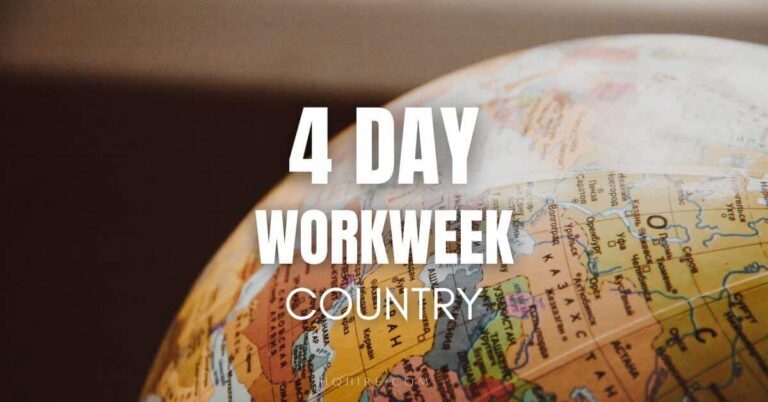Disagreements at work happen. They’re normal. But how you handle them can make or break your career. When an interviewer asks how you’d deal with a conflict, they want to see your problem-solving skills.
A good answer shows you can communicate well, stay professional, and find solutions.
This question helps employers see how you’d fit into their team. They want to know if you can keep your cool and work well with others, even when things get tough.
It’s a chance to prove you’re a team player who can work through tough situations.
Key Takeaways
- Show you can communicate clearly and listen to others
- Focus on finding solutions that work for everyone
- Highlight your ability to stay professional and respectful
Why Do Employers Ask “How Would You Handle a Disagreement With Your Team Member or Manager?” During an Interview
Employers ask this question to learn about your conflict resolution skills. They want to see how you deal with tough situations at work. Bosses look for team players who can handle disagreements professionally. They don’t want drama or conflicts to disrupt the workplace. Your response gives insight into your personality and work style. It helps employers picture how you’d fit in with their team.
Your answer shows if you can:
- Stay calm under pressure
- Communicate effectively
- Find solutions to problems
- Work well with others
They also want to know if you can disagree in a productive way. Can you stand up for your ideas while still respecting others?
Disagreements happen in every job. How you handle them can make or break your career. That’s why this question is so important to employers.
By asking this, they’re checking if you have the skills to:
- Listen actively
- See other viewpoints
- Compromise when needed
- Find win-win solutions
Your answer gives them a peek into how you’d handle real workplace challenges. It’s your chance to show you’re a great teammate and problem-solver.
Common Variations of “How Would You Handle a Disagreement With Your Coworkers?”

Interviewers often ask about conflict resolution in different ways. Here are some common variations you might hear:
- “Tell me about a time you had a conflict at work.”
- “How do you deal with difficult coworkers?”
- “Describe a situation where you disagreed with your boss.”
These questions aim to assess your communication and problem-solving skills. They want to know if you can handle workplace conflicts professionally.
Some other ways they might phrase it:
- “What’s your approach to resolving team disagreements?”
- “How have you handled conflicts in past roles?”
- “Give an example of a time you successfully resolved a dispute.”
The interviewer wants to hear about your conflict management skills. They’re looking for examples of how you’ve handled real situations.
Be ready with a few stories that show your ability to: listen actively, communicate clearly, find compromises and stay professional
Your answer should highlight your problem-solving abilities and show that you can work well with others, even in challenging situations.
How To Answer “How Would You Handle A Disagreement At Work?”

Handling disagreements well shows your problem-solving skills. This guide will help you answer this common interview question with confidence.
Step 1: Start by Staying Calm
Take a deep breath and remind yourself that disagreements are normal. Show the interviewer you can keep your cool under pressure.
Explain that you’d first try to understand the other person’s point of view. Listen carefully to their concerns without interrupting. This shows you value communication skills and respect others’ opinions.
Use “I” statements to express your thoughts without blame. For example, say “I think we might have different ideas about this” instead of “You’re wrong.”
Step 2: Find Common Ground
Look for areas where you and the other person agree. This creates a positive starting point for solving the problem.
Highlight your teamwork skills by saying you’d collaborate to find a solution. Mention that you’d be open to compromise if it benefits the project or company.
Use facts and data to support your position. This shows you make decisions based on logic, not emotions. Be ready to back up your ideas with solid reasons.
Step 3: Focus on The Issue
Suggest a private meeting to discuss the issue. This shows professionalism and respect for the other person’s privacy. It also prevents the disagreement from affecting the whole team.
Propose brainstorming together to find new solutions. This demonstrates your creativity and willingness to work with others. Be open to ideas you hadn’t considered before.
Show your problem-solving skills by breaking down the issue into smaller parts. This can make big problems feel more manageable.
Step 4: Work on The Solution
If needed, involve a neutral third party. This could be a team leader or HR representative. Explain that you’d do this respectfully, not to “tattle” but to find a fair solution.
Describe a specific situation where you successfully resolved a conflict in the past. Use the STAR method:
- Situation: Briefly explain the context
- Task: What you needed to achieve
- Action: Steps you took to resolve the issue
- Result: Positive outcome of your actions
This shows you have real experience handling disagreements well.
Step 5: Results
Emphasize learning from the experience. Tell the interviewer how you’d follow up after resolving the disagreement. This shows your commitment to personal growth and improving workplace relationships.
Mention that you’d document the resolution if needed. This demonstrates your attention to detail and professionalism.
End on a positive note. Say you view disagreements as chances to learn and improve team communication. This shows you have a growth mindset and can turn challenges into opportunities.
Best Example Answers To “How Would You Handle A Disagreement With A Team Member Or Manager?”

Handling disagreements professionally is a vital skill in the workplace. These example answers showcase effective ways to navigate conflicts with colleagues at different levels while maintaining positive relationships.
Example Answer For Handling A Disagreement With A Team Member
“I focus on open communication and finding common ground. First, I’d ask to speak with my teammate privately. I’d listen to their perspective without interrupting. Then, I’d calmly explain my viewpoint.
Together, we’d brainstorm solutions that address both our concerns. I’d suggest compromises where possible. If needed, I’d propose involving a neutral third party to mediate.
The goal is reaching an agreement that benefits the team and project. I’d document our resolution and follow up to ensure it’s working. This approach has helped me turn disagreements into opportunities for stronger collaboration.”
Example Answer For Handling A Disagreement With Manager
“I’d request a private meeting with my manager to discuss the issue. I’d prepare by outlining my concerns and potential solutions. During the meeting, I’d listen attentively to understand their reasoning.
I’d then respectfully share my perspective, focusing on facts and how my suggestion could benefit the team or company. I’d ask questions to clarify any misunderstandings.
If we can’t agree, I’d ask about trying my approach on a small scale to test its effectiveness. I’d also offer to gather more data to support my viewpoint. Ultimately, I’d respect their decision while continuing to provide my best work.”
Example Answer For Handling A Disagreement With Your Direct Supervisor
“I’d schedule a one-on-one meeting with my supervisor to address the disagreement. I’d start by acknowledging their expertise and expressing my respect for their position.
I’d then clearly explain my concerns, using specific examples. I’d ask for their input and listen carefully to their perspective. Together, we’d explore different options to resolve the issue.
If we can’t reach an agreement, I’d ask for clarity on the reasoning behind their decision. I’d also request guidance on how to best implement their approach. My goal would be to maintain a positive working relationship while ensuring I understand and support the team’s direction.”
Example Answer For Handling A Disagreement With A Client
“When facing a disagreement with a client, I’d first listen carefully to fully understand their concerns. I’d ask clarifying questions to ensure I grasp all aspects of the issue.
Next, I’d acknowledge their viewpoint and explain our company’s position clearly and professionally. I’d focus on how our approach benefits their goals. If possible, I’d offer a compromise or alternative solution.
If we can’t reach an agreement, I’d consult with my supervisor for guidance. I’d always aim to maintain a positive relationship with the client while upholding our company’s standards and policies.”
Example Answer For Applying For A Leadership Position
“As a leader, I believe in proactive conflict resolution. I’d create an environment where team members feel comfortable expressing concerns. I’d hold regular check-ins to address issues early.
When disagreements arise, I’d facilitate open discussions. I’d encourage all parties to share their perspectives. As a mediator, I’d help identify common goals and areas of agreement.
I’d guide the team in brainstorming solutions that address everyone’s concerns. I’d document the agreed-upon resolution and follow up to ensure its effectiveness. By modeling respectful conflict resolution, I’d foster a culture of collaboration and mutual respect.”
Join over 11,000+ achievers who are committed to achieving their career goals!






